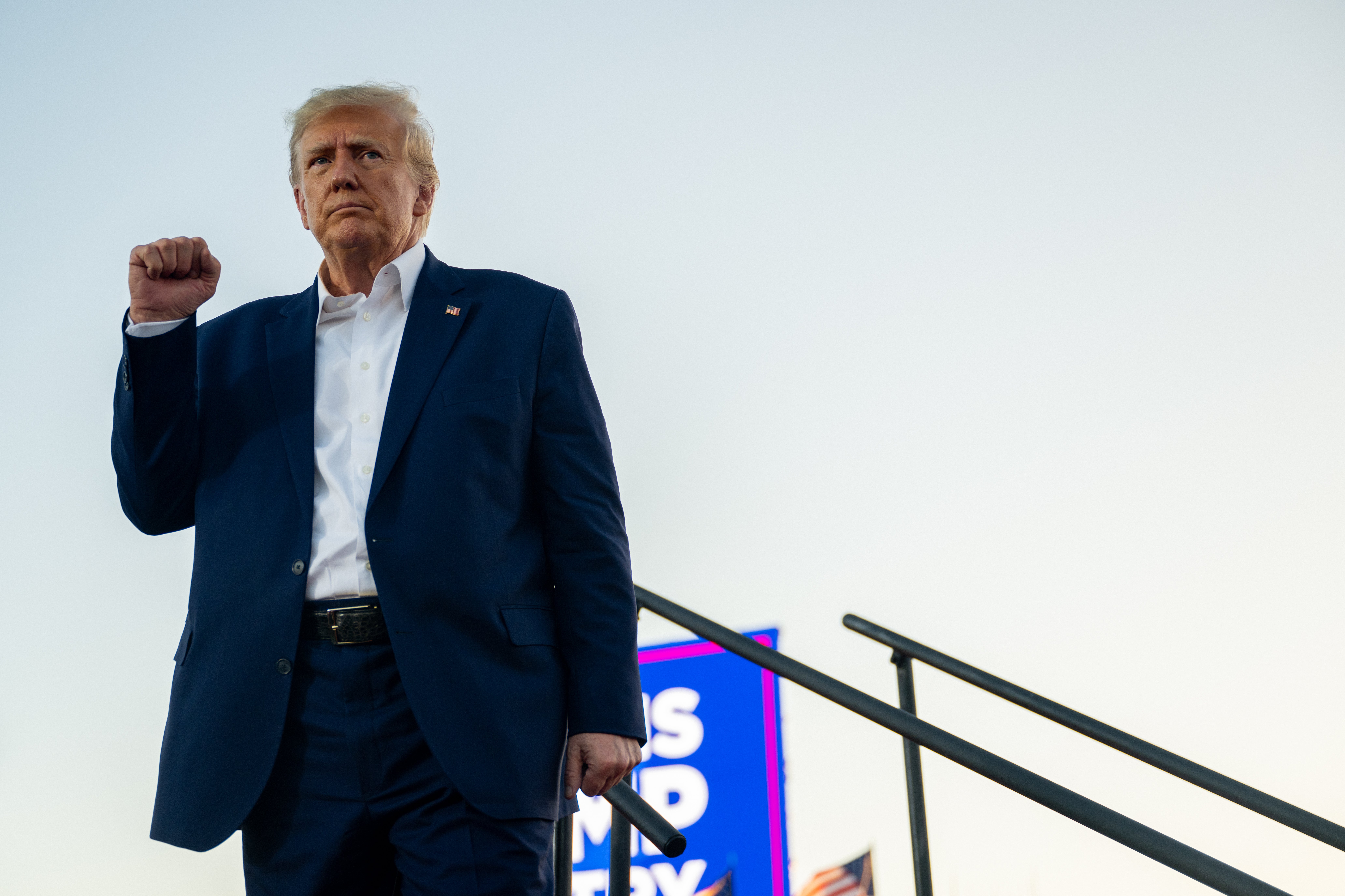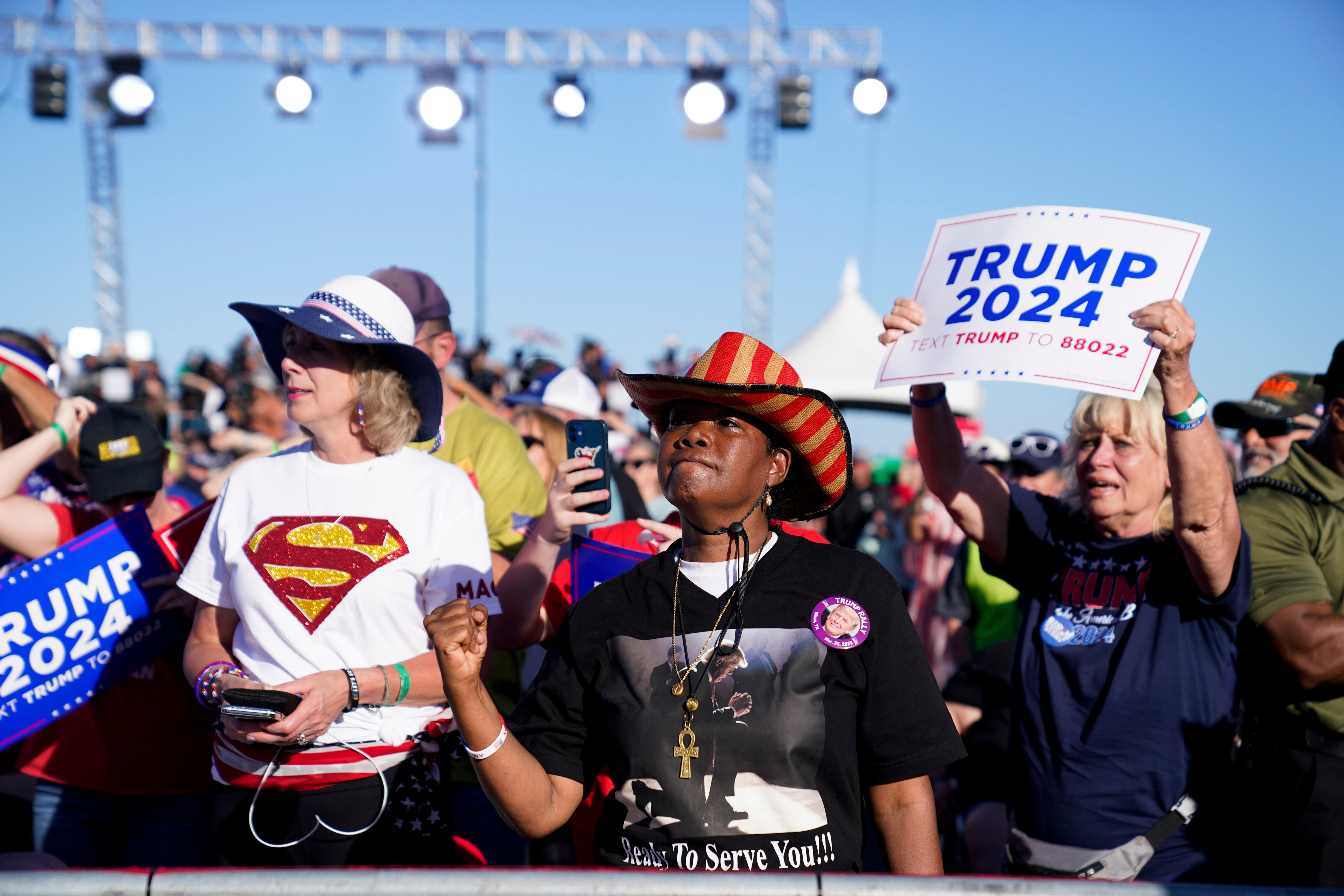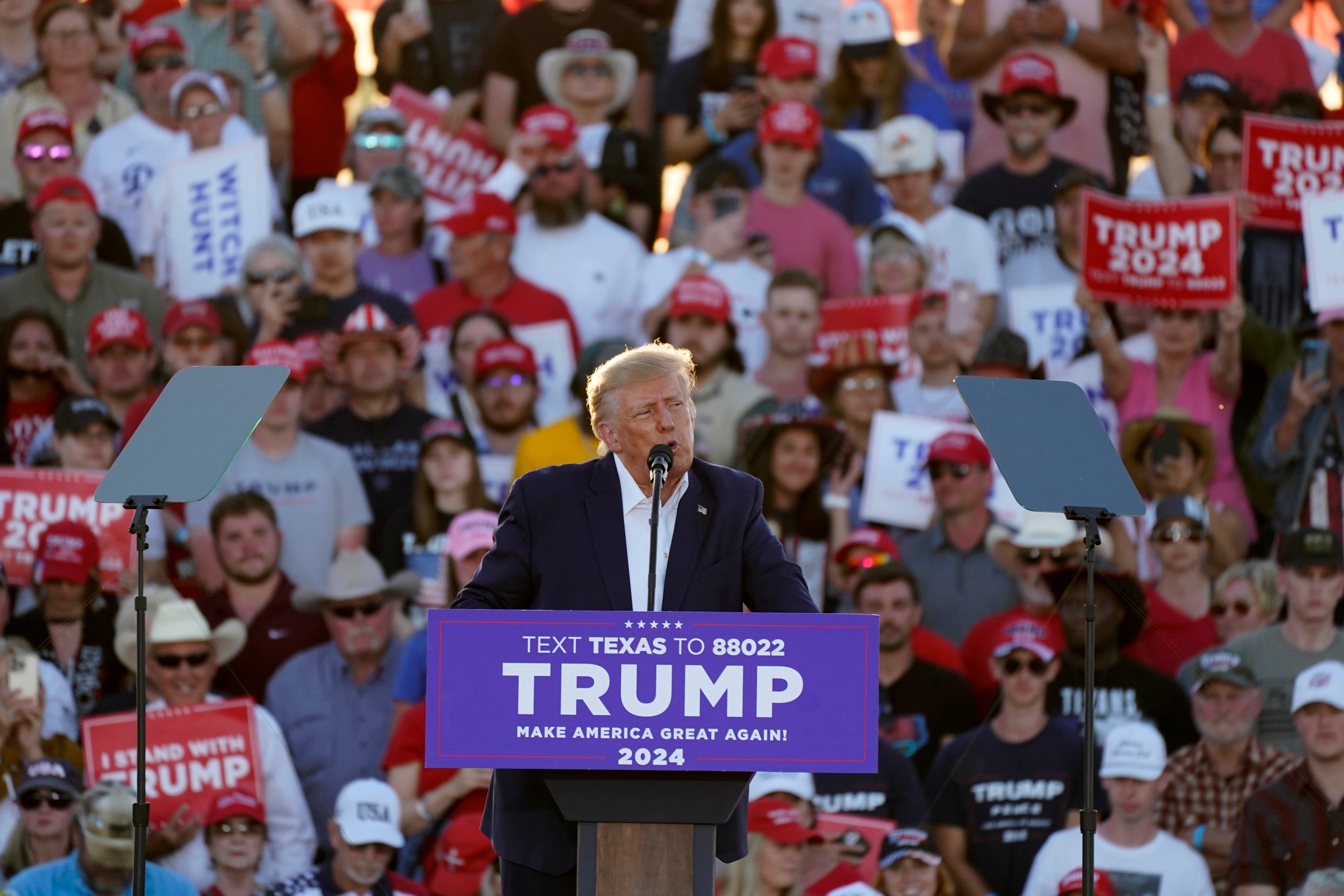
As soon as former president Donald Trump announced, without evidence, that the Manhattan District Attorney planned to indict him, a consensus emerged that the charges would actually boost his re-election prospects in 2024.
Senator Marco Rubio told The Independent that “for Democrats it’s counterproductive, politically. I think it’s gonna backfire.” Shortly after Mr Trump blasted out the missive in an furious all-caps post, Twitter owner and Tesla executive Elon Musk tweeted: “If this happens, Trump will be re-elected in a landslide victory.”
Then it happened. On Thursday, a New York grand jury decision was made to indict the former president. He is expected to be charged next week in relation to “hush money” allegedly paid to the porn star Stormy Daniels.
So what happens next?
For eight years, Mr Trump has upended everyone’s expectations of politics and earned himself the reputation of “Teflon Don”. He called war hero and Senator John McCain a loser and won the Republican nomination anyway (even if he did go on to lose Arizona in the 2020 general election). He won the presidency in 2016 weeks after audio of him bragging about sexually assaulting women leaked. An overwhelming majority of Republicans opposed impeaching him after he incited a riot at the US Capitol. Many are convinced that the former president has a way of turning every perceived disadvantage into an advantage.
But despite conservatives’ confidence, pollsters and analysts tell The Independent that the future is not so clear this time around.
“It’s a very dangerous proposition to try to predict the future,” says Patrick Murray, director of Monmouth University’s polling institute. “But what we tend to say about what we’ve seen so far is that Trump’s base support has stood with him through thick and thin.”
Mr Murray believes most dedicated Trump supporters are exercising what he calls a “politics of grievance,” rather than a devotion to any particular idea. They represent about a third of the Republican electorate, and everything indicates they will likely stick with the former president.
At the same time, he thinks that the news of the arrest and indictment is unlikely to move enough voters because fewer swing voters exist these days: “So the swing voters really are few and far between. Now, having said that, the fact that we are such an evenly divided electorate means that those small number of swing voters could have a significant impact. The problem from a polling perspective is that there's so few, and it's very difficult to get a clear read on them.”
While Mr Trump will probably survive a Republican primary after the indictment, that doesn’t mean that it will move any voters toward him in the way he might have hoped.
“If you see anything about our political divide, it's just gotten wider, and both sides have moved closer to the wings of the respective parties,” Mr Murray adds.
Still, Mr Trump has leaned heavily into the grievance politics Mr Murray mentioned.
“For those who have been wronged and betrayed, of which there are many people out there that have been wronged and betrayed, I am your retribution,” Trump said at a recent rally in Waco, Texas. “We will take care of it. We will take care of it.” The town is the site of a deadly standoff with the federal government decades ago, a conflict which often comes up in far-right online conversation. Such a choice of venue was telling. It seems to imply that the former president is still pursuing a particular subset of radical Republicans, rather than attempting to widen his appeal.

“There’s this temptation with Trump to attribute method to some of the madness, and I just don’t think it’s there,” Zac McCrary, a Democratic pollster at Impact Research, tells The Independent. “I think, myself included, a lot of us have been more wrong about Trump than right about Trump going back nearly a decade.”
Mr McCrary says that he thinks the indictment will ultimately be “a wash” for Mr Trump since it will allow him to overshadow all of his potential opponents in terms of media coverage.
“Trump, as we saw in ’16, just continues to block out the sun and the Republican universe revolves around Trump,” Mr McCrary said, adding there is “not a lot of opportunity for these other candidates to get traction to tell their own story, unless it’s purely in opposition to Trump, which is just not a way to run and win tough races.”
But that is not necessarily a winning recipe for voters who don’t fit into the far-right niche.

“I think it’s nearly impossible when Trump is now sort of landlocked with these voters,” he says. “And the sentiment is only hardened by making him even more out of step with what a lot of these sort of Romney-style Republicans would look at.”
Gunner Ramer, the political director of the anti-Trump Republican Accountability Project, sees a short-term advantage for the former president that doesn’t translate into long-term success.
“I think, in the short term, there could be a rally around Trump,” he says. “But I think the real open question is, long term, is the consequence of an indictment another sort of point for Republican primary voters to look at? And it’s a sign of political baggage.”
Ramer says that after the January 6 select committee hearings, support for the former president diminished as die-hard supporters started seeing their family and friends move away from his toxic brand. That changed after the FBI executed a search warrant for documents from Trump’s residence at Mar-a-Lago, which led to a rally around him. But the bump was short-lived, and support fizzled out again when his hand-picked candidates flopped in the 2022 midterms.
“And again, it was this political calculation that Donald Trump has too much baggage. ‘I still very much like him, but enough people don’t,’” Mr Ramer adds.

If anything, Ramer thinks, the indictment could serve as a boon to Mr Trump’s biggest political threat: Florida Governor Ron DeSantis, who is expected to announce his 2024 campaign this summer. Mr DeSantis’ numbers have taken a dive in recent weeks. There was a mixed response when he called the war in Ukraine a “territorial dispute,” and Mr Trump took advantage of the downturn by hammering his former protégé. In Waco, the former president spent just as much time attacking Mr DeSantis as he did the other investigations into him.
Mr DeSantis is in need of a boost, and this could be it.
“They very much like Ron DeSantis, but they see Ron DeSantis in relation to Trump,” Ramer says, of the Florida governor’s supporters. “They see him as someone fighting the culture wars, and, as people said, ‘Trump without the baggage. Trump not on steroids.’”







